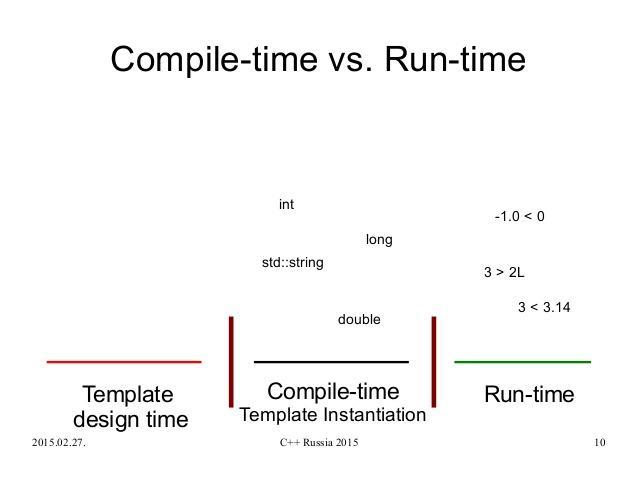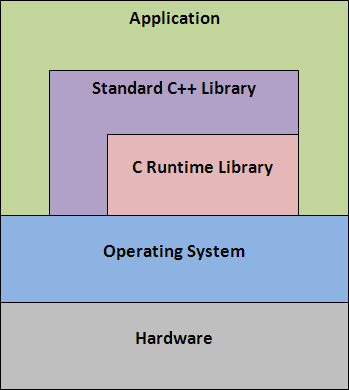Quick Tips for Java Programmers Beginning to Code in C++

Java was developed by James Gosling at Sun Microsystem, which was later acquired by Oracle. Java was released in 1995 as an essential feature of the Sun Microsystem’s Java platform.
Classified as a general purpose computer programming language, Java is a concurrent, object-oriented and class-based a language which is specifically designed to have a few application requirements as possible.
It works on the formula of ‘write once and run everywhere’, which translates to the fact that the Java code once compiled can be executed on all platforms that extend support to Java without the need of any recompilation.
On the other hand, C++ is the successor of the Dennis Ritchie creation, C. A general purpose programming language, C++ has generic programming features and provides facilities for low-level memory manipulation.
Designed with the inclination towards system programming and embedded, large systems, with performance, efficiency, and flexibility of use as its design highlights, C++ has been found useful in software infrastructure, servers, desktop applications and performance-critical applications.

C++ programming is one of the most lucrative fields for budding developers, and many developers are switching to C++ from Java. You can find the community recommended best C++ tutorials and courses on Hackr.io. Below are seven quick tips for programmers who are beginning to code in C++ after a fair share of time in Java Programming.
The ‘new’ Keyword
While working with Java programming, the ‘new’ keyword is used to instantiate objects, while in C++, a variable instantiated with ‘new’ is unmanaged and it must always be kept in a note to free the memory after use.
This process can be done by using the ‘delete’ keyword. For the programmers who have come from Java, this may look extremely inconvenient and can prove to be error prone as well.
The reason why an extra statement is required in C++ is that, in C++, there are many ways by which an object can be instantiated, but the preferred method is directly on to the stack. When variables are assigned on the stack, they are by design deleted once they go out of scope. This is very short and has great performance effects.
‘Const’ or ‘Final’, which is more powerful?
When developing large applications, one must always render values immutable, which reduces the complexity of the program by reducing the number of moving parts the application encompasses. Java uses the ‘final’ keyword to mark a
reference as immutable.
Since the data that is pointed to can change, Java developers have to mark all fields inside of a class as final to create truly immutable types.
In C++ however, the ‘const’ keyword can be used which is far more powerful than the ‘final’ keyword of Java. In an instance is termed as ‘const’, then the members of the instance cannot change even if they are unmarked in the class
definition.
Stack Slicing
C++ lets the users decide if they want the objects should be categorized in a heap or a stack, unlike Java, whose objects are in a heap. In terms of predictable and fast performance, Stack is the better option, but a big restriction follows it which requires the size of each variable to be known at compilation time.
When a stack variable is allocated to a super-class in C++, it grasps the members and method applications of that class. This is for the reason that the size of a variable’s value should not more than the size of its type.
For stack- variables, the compiler just removes or “slices” of the additional info of the subclass. To avoid this, variables can be pointed to instead. A pointer will remain with the same size, irrespective of the size of the value being directed to.
The Operator Overload
Java does not permit the users to define custom value types and operators parallel to ‘int’ and ‘boolean’. Due to this, vector and matrix employments can be fairly burdensome! Whereas in C++, we can just overload the ‘+’ operator,
which makes the vector usable, similar to the built-in primitives.
Using the Compile-Time Programming

Java’s generics are extremely easy, and for the maximum portion are only valuable for collection types. C++ templates increase the opportunities for compile-time programming significantly and are in multiple ways more similar to Java’s interpretations.
In C++, we can make this a parameter of the type, and program generic code that controls all sizes once! The code is produced at compile-time, so the generic code is no less effectual than the hand-written correspondent.
Using Auto!
Java notably is short of a variable type-inference keyword such as ‘auto’ (C++), ‘var’ (C#), ‘val’ (Kotlin) or ‘let’ (OCaml).
This can make Java programming fairly long-winded, particularly when classes such as impleBeanFactoryAwareAspectInstanceFactory are in the field. With C++, the compiler can point out multiple types for the user, saving some typing and making the code more clear.
Making Use of Multiple Libraries

The Java Virtual Machine for better or for worse gives the users multiple platform abstractions out of the box. If we compare it to C++, the result is quite slim.
C++ lacks built-in support for file systems and graphics. In its place, C++ have to use libraries to implement these functions.
A good library will also abstract over platform alterations, presenting a common set of portable functions, just like Java. Neither methodology is severely superior. Java developers profit from a more united environment, as everyone is
using the same fundamental APIs. C++ developers are relieved by functionality that they do not need, but they also have to make additional decisions about what to use and spend more time mixing the same.





